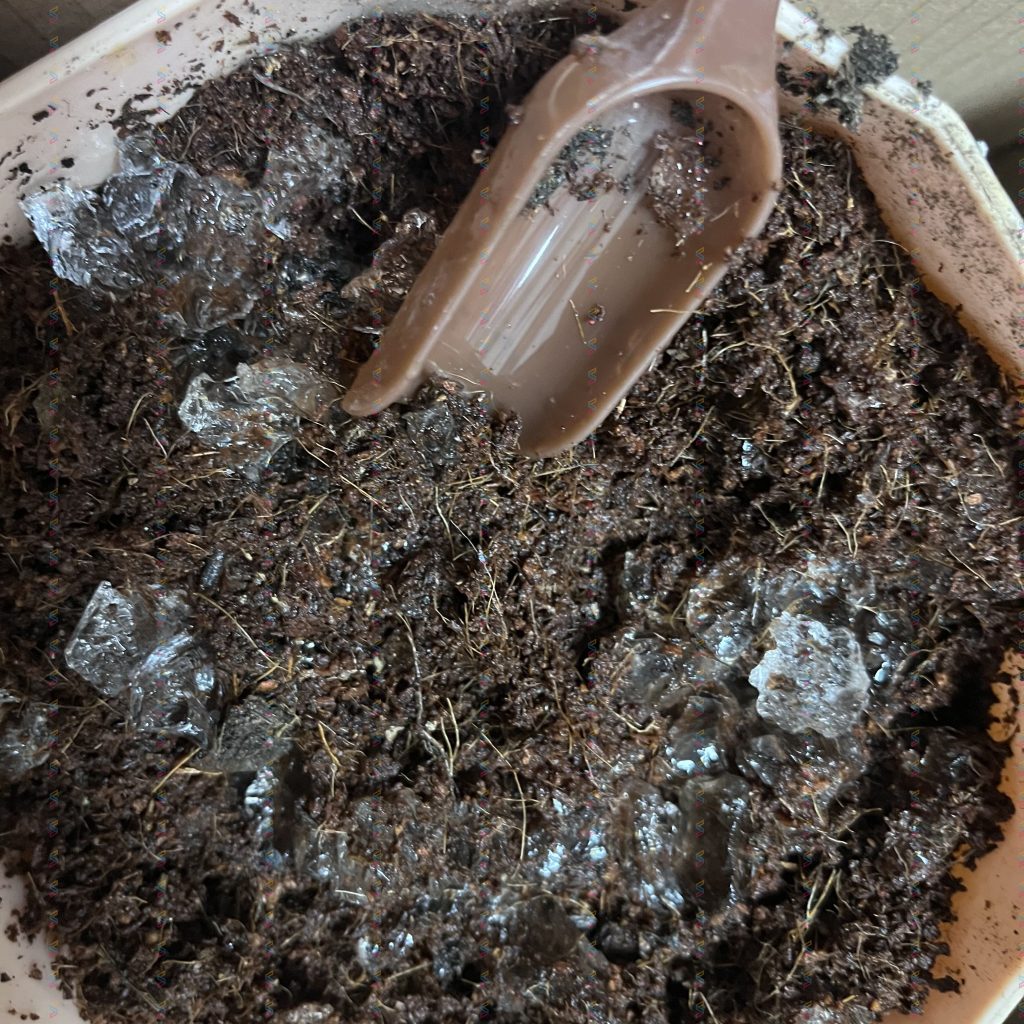GELSAP Potassium polyacrylate, a superabsorbent polymer, is widely used across various industries due to its remarkable water-absorbing properties. Here are several common applications of potassium polyacrylate:
Agriculture:
Soil Conditioner: GELSAP Hydrogel is applied in agriculture as a soil conditioner. When added to the soil, the hydrogels enhances water retention, promoting optimal moisture levels for plant growth. This is particularly beneficial in arid regions or areas with irregular rainfall.
Applications and Methods of Using Potassium Polyacrylate
Potassium polyacrylate, widely known for its superior water retention properties, is utilized in various applications to improve soil moisture and crop productivity. Despite having the same primary component, its raw materials and processing techniques differ, leading to diverse functionalities in different contexts.
1. Soil Water Retention Agent Application:
Primary Use: Crop planting and transplantation.
Mechanism: Absorbs and releases water in the soil repeatedly, creating a “micro-reservoir” around the crop roots, ensuring sufficient moisture.
Benefits:
Water Savings: Can reduce irrigation water by up to 45%, proven to save up to one-third of water usage in agricultural practices.
Increased Yield: Enhances crop growth and productivity, with some cases showing up to a 60% increase in yield.
Transplant Success Rate: Increases transplant survival rates up to 98%.
Fertilizer Efficiency: Improves basal fertilizer utilization by 25-45% and water-soluble fertilizer utilization by 30-60%.
Labor Cost Reduction: Decreases irrigation frequency and fertilization needs, saving up to 45% in labor costs.
Environmental Friendliness: Completely degradable in soil, posing no pollution risk.
2. Coated Water Retention Agent Application:
Primary Use: Seed coating, a technique already applied in agriculture.
Benefits:
Sustained Moisture Supply: Absorbs and stores large amounts of water, gradually releasing it to seeds during dry conditions, enhancing germination and seedling survival.
Improved Seed Environment: Maintains a moist environment around seeds, promoting germination, especially in dry or uneven rainfall areas.
Slow Release of Fertilizers and Pesticides: Can be combined with fertilizers and pesticides, gradually releasing nutrients and protection agents to seeds and seedlings, increasing efficiency and reducing waste.
Enhanced Seed Quality: Coating smoothens and regulates seed surfaces, improving sowing performance and precision, aiding in mechanized sowing and operational efficiency.
Seed Protection: Provides physical protection against mechanical damage and pests, improving seed storage and transport stability.
Horticulture and Gardening:

Water Retention in Potting Mixes: Potassium polyacrylate can be incorporated into potting mixes to improve water retention, ensuring a consistent water supply for plants. This is especially useful in potted plants and landscaping.
Cooling Systems:
Cooling Gel Packs: Potassium polyacrylate is used in the production of cooling gel packs. When hydrated, these packs can provide a cooling effect, making them useful for medical applications, sports, and first aid.
Soil Water Retention with Potassium Polyacrylate
How potassium polyacrylate uses?
Potassium polyacrylate is widely recognized for potassium polyacrylate superior water-absorbing capabilities, making it a vital component in various water retention products. These products, although similar in composition, serve distinct purposes in agriculture and soil management due to differences in raw materials and processing techniques. The primary categories of water retention agents include soil water retainers, saline-alkali resistant water retainers, coated water retainers, and water-retaining disintegrants. Here’s an overview of each type and their unique benefits:
1. Soil Water Retainers
Purpose: Primarily used for crop planting and transplanting.
Mechanism: Soil water retainers work by repeatedly absorbing and releasing water in the soil, forming a “miniature reservoir” around plant roots. This ensures a consistent water supply within the root zone, supporting plant growth.
Benefits:
- Water Conservation: Using soil water retainers can reduce irrigation water usage by up to 50%. Studies have shown that it can decrease irrigation needs by one-third, with maximum reductions reaching 50%.
- Increased Yield: These retainers promote plant growth and development, leading to an average yield increase of around 20%, with some cases reporting up to 67%.
- High Transplant Survival Rate: Feedback indicates that the transplant survival rate can reach up to 99%.
- Enhanced Fertilizer Efficiency: Soil water retainers can improve the utilization of base fertilizers by 35-50% and water-soluble fertilizers by 35-65%.
- Labor Cost Savings: Reduced irrigation frequency and less frequent fertilization can cut labor costs by 50%.
- Environmental Friendliness: These retainers are fully degradable in soil, leaving no pollution.
2. Saline-Alkali Resistant Water Retainers
Purpose: Specifically developed for saline-alkali soil conditions.
Mechanism: These retainers contain salt-antagonizing factors that allow them to absorb and release water repeatedly in saline-alkali soils. The salt concentration in the retainer is lower than that in the soil, enabling plants to preferentially absorb water from the retainer and reducing the harmful effects of soil salinity on plant roots.
Benefits:
- Protection Against Salinity: By providing a preferential water source, they mitigate salt damage to plant roots.
- Improved Fertilizer Efficiency: They absorb fertilizers from the soil, enhancing nutrient utilization and promoting crop growth in saline-alkali soils.
- Soil Structure Improvement: These retainers can significantly improve soil structure, reduce soil compaction, and enhance soil water retention and nutrient efficiency, leading to increased crop yield and quality.
3. Water-Retaining Disintegrants
Purpose: Used in the granulation of organic or bio-organic fertilizers.
Mechanism: Suitable for various granulation processes, including disc, drum, and extrusion granulation, these disintegrants accelerate the breakdown of fertilizer granules, enhancing the release rate and utilization efficiency of fertilizers.
Benefits:
- Enhanced Fertilizer Release: Increase fertilizer efficiency by 35-65%.
- Sustained Moisture and Nutrient Supply: Provide stable water and nutrient supply for continuous plant growth.
- Improved Fertilizer Quality: Result in smoother, more uniform granules with better commercial value.
- Soil Aeration: Expand over double their volume, improving soil permeability and reducing compaction.
- Environmental Safety: Biodegradable in soil, ensuring soil safety and environmental friendliness.
4. Coated Water Retainers
Purpose: Used in seed coating, a technique widely applied in agriculture.
Mechanism: Coated water retainers provide seeds with a protective layer that absorbs and stores water, gradually releasing it to ensure adequate moisture during germination and early growth stages.
Benefits:
- Continuous Moisture Supply: Ensure seeds have enough moisture for germination and early growth.
- Improved Seed Environment: Maintain a moist environment around seeds, crucial in arid or irregular rainfall areas.
- Slow-Release Nutrients and Pesticides: Combine with fertilizers and pesticides to gradually release nutrients and protectants, improving efficiency and reducing waste and environmental pollution.
- Enhanced Seed Quality: Smooth and uniform seed coating improves sowing performance and accuracy, aiding in mechanized sowing.
- Seed Protection: Provides physical protection, reducing mechanical damage and pest infestations, improving seed storage and transport stability.
Potassium polyacrylate-based water retention agents play a crucial role in enhancing soil moisture retention, improving crop yields, and promoting sustainable agricultural practices. Each type of retainer, through its unique formulation and application, addresses specific agricultural challenges, contributing to more efficient and environmentally friendly farming methods.





